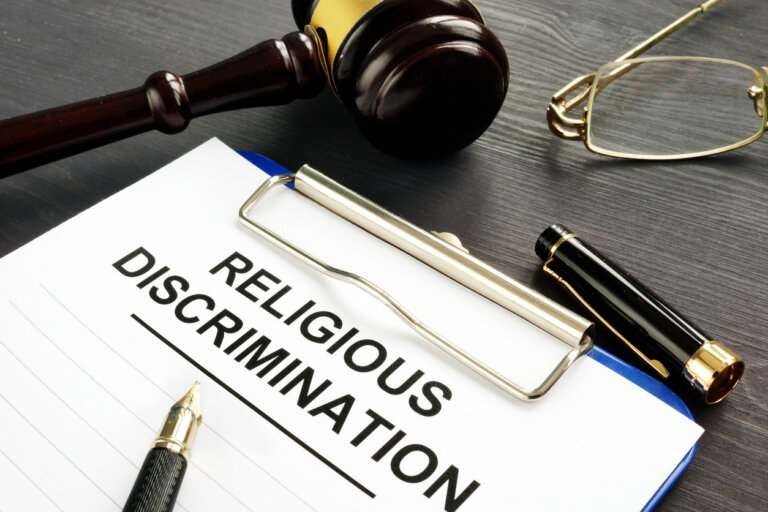As the holiday season approaches, with its diverse celebrations and observances, employees’ religious beliefs and practices might be overlooked or disrespected. This blog sheds light on religious discrimination during the holidays and informs employees about their right to a respectful and inclusive work environment.
What Is Religious Discrimination
Religious discrimination in the workplace refers to treating an employee unfavorably because of their religious beliefs. During the holiday season, this can become particularly prevalent, as various religious celebrations and observances come into focus.
Discrimination can range from outright denial of reasonable accommodation for religious practices to subtle biases in scheduling or holiday-related activities. Employees may find themselves excluded from certain events or pressured to participate in activities that conflict with their beliefs, which can constitute discrimination.
The holiday season can also amplify misunderstandings or stereotypes related to certain religions. For example, assumptions about who celebrates Christmas or Hanukkah can lead to unintended exclusion or favoritism. Subtle forms of discrimination might include decorating the workplace in a manner that only reflects certain religious traditions, thereby creating an environment that feels unwelcoming to those of different faiths.
Religious Discrimination Is Illegal
Under federal law, specifically Title VII of the Civil Rights Act of 1964, employees are protected against religious discrimination in the workplace. This law applies to employers with 15 or more employees, including federal, state, and local governments. Title VII requires employers to reasonably accommodate an employee’s religious beliefs and practices unless doing so would cause more than a minimal burden on the operation of the employer’s business. This includes allowing time off for religious observances and accommodating dress and grooming practices that are part of an employee’s religious beliefs.
The New York State Human Rights Law extends these protections, applying to employers with 4 or more employees. This state law prohibits discrimination in employment based on religion and requires employers to accommodate an employee’s religious observances and practices unless they impose an undue hardship on the business.
Finally, the New York City Human Rights Law, considered one of the most comprehensive anti-discrimination laws in the country, further strengthens these protections. It covers employers with four or more employees and places a high burden on employers to provide reasonable accommodations for religious practices, ensuring a more inclusive workplace for all religious beliefs.
How To Spot Religious Discrimination During the Holidays
While overt discrimination is more easily identified, subtle signs are often overlooked, yet they can significantly impact an employee’s sense of inclusion and respect. Some of these subtle signs include:
- Displaying decorations for one specific holiday, thereby disregarding or minimizing other religious observances.
- Pressuring employees to participate in holiday events or activities that may conflict with their religious beliefs.
- Making offensive comments or jokes about certain religious practices or observances.
Employers and colleagues should be mindful of their actions and language, especially during the holiday season, to ensure a welcoming atmosphere for all employees, regardless of their religious beliefs.
How To Protect Your Rights
If you encounter religious discrimination in the workplace, especially during the holiday season, it’s essential to know the steps you can take to protect yourself. First, document any incidents of discrimination, including dates, times, and details of conversations or behaviors. This record will be valuable if you need to escalate the matter. Next, report the issue to your HR department, as they are responsible for ensuring that workplace policies against discrimination are enforced and can mediate to resolve the situation.
If the issue cannot be resolved internally, consulting with an attorney who practices employment law is wise. An attorney can offer legal advice on your situation, help you understand your rights under federal, state, and local laws, and guide you on the best course of action, whether filing a formal complaint or pursuing legal action. Remember, taking a stand against discrimination not only protects your rights but also contributes to creating a more inclusive and respectful workplace for everyone.
The Takeaway
Understanding and addressing religious discrimination, particularly during the holiday season, is vital for ensuring a respectful and inclusive workplace. By fostering an environment of respect and understanding, we can all contribute to a workplace that honors and celebrates the diverse religious beliefs and practices of all employees.


